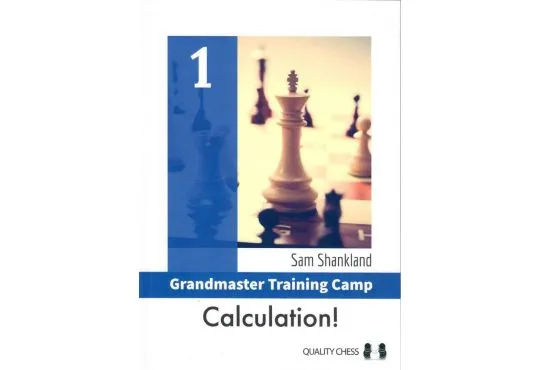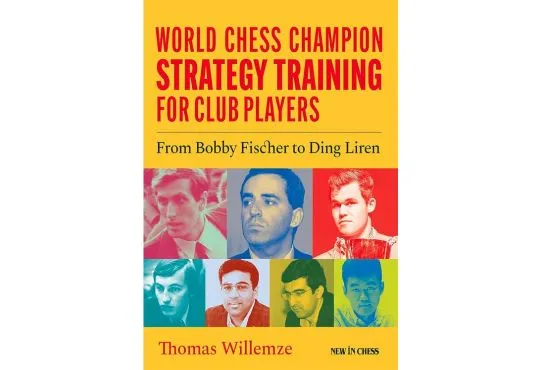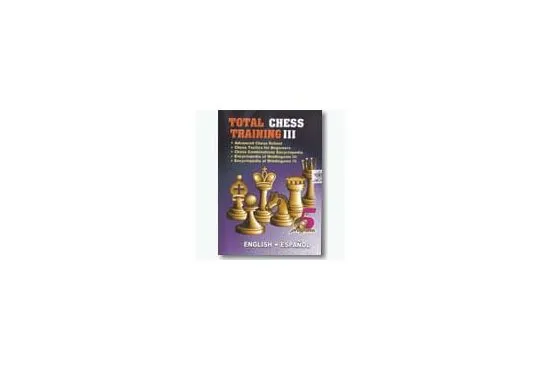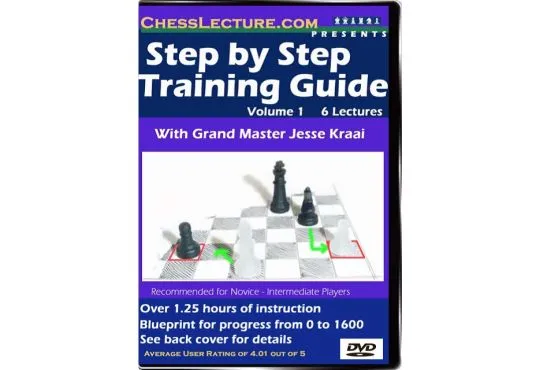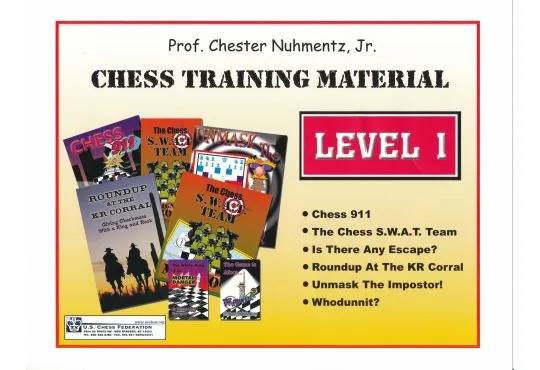Develop the Perfect Training Plan for Chess
Cue the training montage music, put on that headband, and get ready to win some games. The fastest way to become a better chess player is with a disciplined and smart study plan. Does that mean you need to be running up stone steps at the break of dawn to have a training plan for chess?

Table of contents
What is a Training Plan for Chess?
The perfect training plan is one that you can stick with. Ultimately a training plan is about smartly allocating your time so that you can improve as quickly as possible. So what should you focus on?
Types of Training Plans
How you allocate your time in a training plan for chess has to do with your current level. Identifying the areas where you are making mistakes and finding the gaps in your knowledge is key. I would separate chess training into two categories:
- Learning
- Practicing
Some players have already learned more, and most of their study plan will include practicing. But if you are still new to chess, a big part of your study plan in chess will be about learning new things and avoiding blunders.
What Are Your Chess Improvement Goals?
The goal of your chess training plan for chess could be winning a tournament, or it could be chess improvement. Playing chess is fun. Maybe your goal is to just be better at your hobby. There is no correct goal in chess! Your goal could be to be a grandmaster. You might want to beat your co-worker at lunch. Nevertheless, having a goal will help solidify your chess practice into a chess study plan. Getting better at chess, especially if you want to become a master, does take time.
How Much Time Do You Have?
Being aware of how much time you have to dedicate to chess is a good start to building your study plan. Once you know you have seven hours a week, or perhaps just two, or even twenty, then you can start to allocate that time to different study subjects.

Improve Your Chess Skills With a Chess Coach
Once you know what your chess goals are, and how much time you want to allocate towards those goals, then one option is to look into finding a chess coach. You can look online to Lichess or other online resources to find a coach. Another option is you can also go to your local chess club or meetup! Often there is a chess coach locally who would love to meet with you both as a part of your study plan, but they can also help you solidify what that plan should be.
Some Things to Avoid in Your Study Plan
If you want to improve in chess, especially if you are trying to build a serious chess study plan, here are some things to avoid.
- Don’t play bots. Firstly, bots do not play like humans. Your goal is to beat other real players, when you incorporate playing games into your study plan, make sure it is not against bots.
- Avoid too much bullet or blitz! I have nothing against bullet or blitz as a fun outlet for your hobby, but if you are trying to build a study plan, look at including longer rapid games.
- Vary your study. A good chess study plan consists of multiple types of study. If all you do is read chess books, you will not improve as quickly as you would if your study plan included a good variety of chess studies.
- Don't give up! Having specific goals is a double-edged fork. If you find yourself not achieving your goals, or losing chess games, keep trying or consider meeting with your coach to re-evaluate your goals. Modifying your goals is not a failure!
-
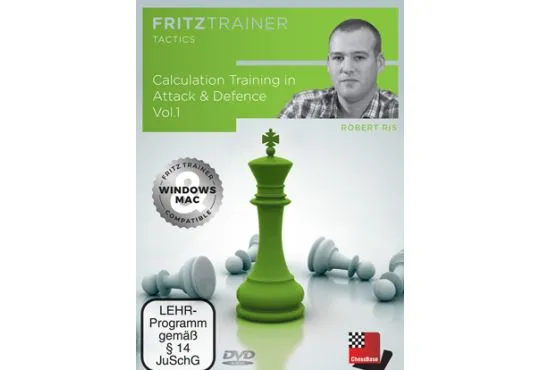 CLEARANCE - Calculation Training in Attack & Defence - Vol.1 - Robert RisSpecial Price $15.00 Regular Price $33.95
CLEARANCE - Calculation Training in Attack & Defence - Vol.1 - Robert RisSpecial Price $15.00 Regular Price $33.95
How to Succeed With Your Training Plan.
Just having a training plan is not always enough to succeed. Here are a few ways you can make sure your training plan is effective.
Write Down Your Chess Training Plan
Keeping your training plan in your head is not enough. Writing down your moves in a chess game can help you learn and improve your chess, and writing down your training plan helps to make your goals more concrete and helps you to stick with your plan! Writing down your plan doesn’t have to be anything outlandish! Even though it would be great to have a whole journal just for your chess training plan, just a document or note on your computer with the details of your plan can increase the success rate of your chess training.
Schedule and Plan a Specific Time!
One great way to make your training plan successful is by scheduling specific times or amounts of time to work on individual parts of your chess. There is a big difference between having a vague goal of “spending some time this week doing tactics,” and “This Monday I will do one hour of tactics at 1 pm.”

Make Sure Playing is a Part of Your Plan.
Playing chess will almost always be the biggest part of the perfect training plan for chess. If you want chess improvement, include enough playing time in your plan. Therefore, consider having an end goal or tournament you are training for to help motivate yourself. Find an upcoming tournament in your area, figure out the date of that event, structure your training plan with that in mind, and good luck in your first tournament! Maybe you want to learn a new opening before that event or do a certain number of puzzles before then. Regardless, having that event on the horizon gives you motivation. Plus, after the event you have games to review!
What Should the Plan Look Like?
Generally, there is no perfect way to format a chess training plan. We want to allocate your training time between the areas of learning you need to focus on, and playing time. As a result, if you have six hours in your week total to dedicate to chess you could break down a plan as follows: If you are a new chess player you might spend two hours during your week doing tactical training, one hour studying a chess book for your level, and two hours playing rapid games online. In general, this could be the right balance of time for you. Conversely, perhaps you need more time in the “learning” category so you shift some of your tactics practice over to opening study.
Have Fun and Be Patient With Yourself!
Ultimately your own chess skills and areas of improvement will be what forms the structure of your chess training plan. Obviously, a coach can really help! In addition, try smartly allocating your time between learning and practicing chess. Don’t forget to schedule playing time and build goals for yourself that optimize your plan. Lastly and most importantly, have fun playing chess and be patient! Regardless, chess growth is a long journey but you are on the right track if you care about building a training plan for chess. Keep working hard and turn that training montage into a win.
Frequently Asked Questions
If you are dedicated to improving in chess and want to do it quickly, build a training plan.
You need to smartly allocate your time between learning and playing.
Generally, if you want to get better at tournament chess, then I would suggest playing longer games. Ideally, you can play rated OTB games as frequently as possible.
Firstly, have fun! Enjoy your hobby! But if you want to improve at longer time control games and improve your rating, then include practice with at least with rapid games in your training plan and play the faster games for fun.
Basically, examine your own games and see if there are any types of mistakes you are regularly making. This could be an area where some more study or practice is needed. A coach can be a great help in finding those areas where you need to improve as well!


